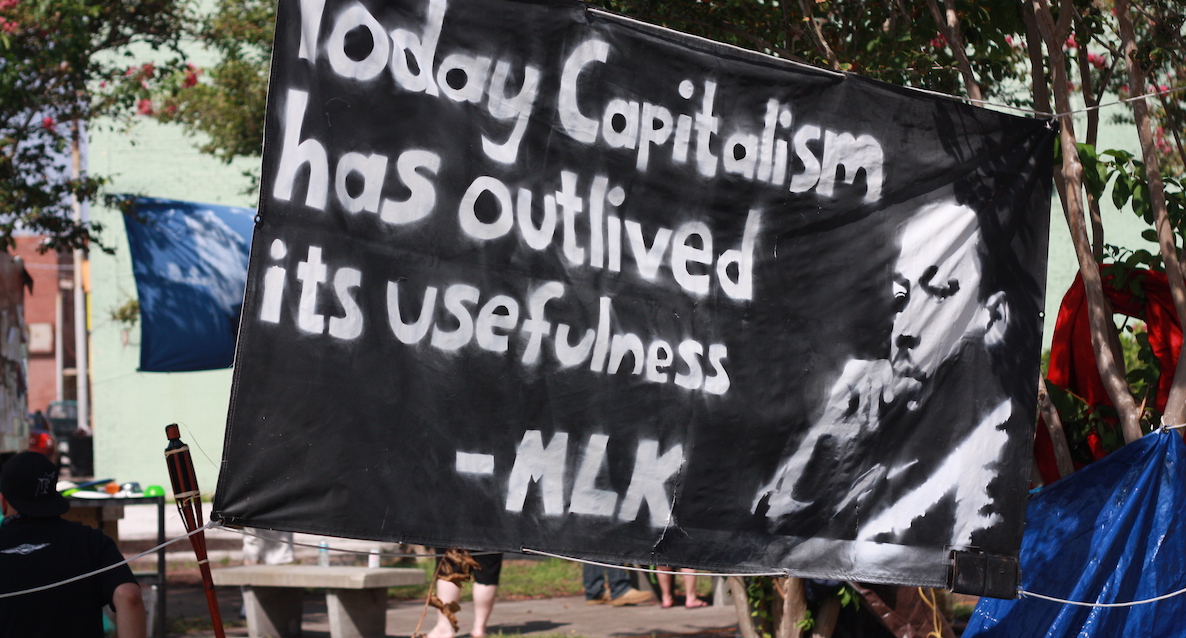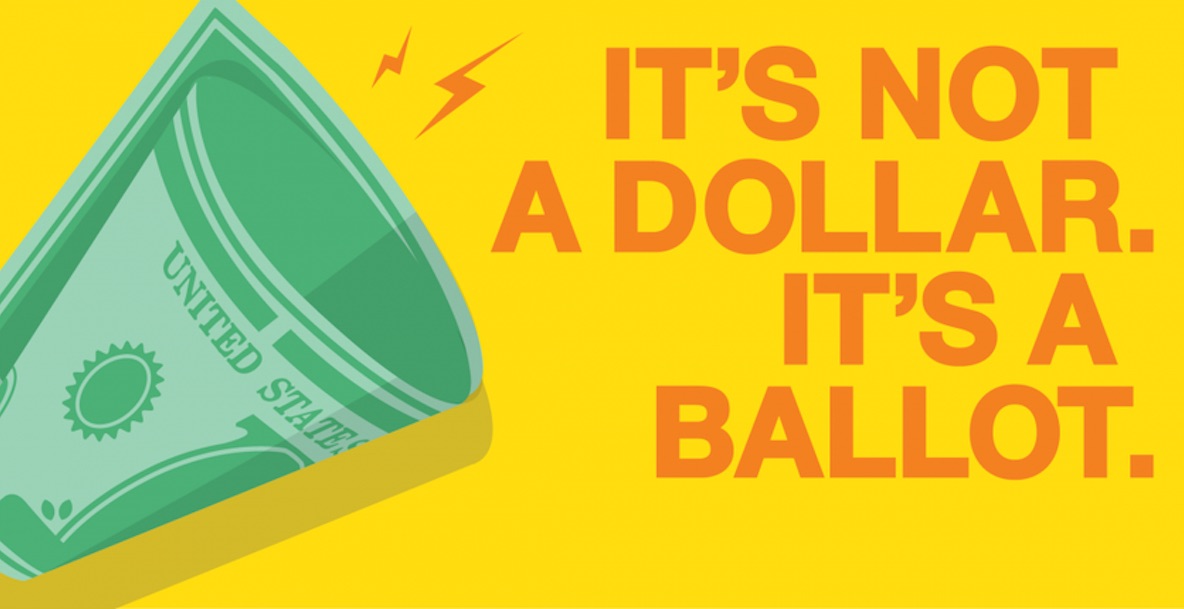
Prefer the audio version of this story? Listen to this article in CitizenCast below:

Donella Meadows, the scientist, systems thinker, and pioneering environmentalist best known for her prophetic 1972 book Limits to Growth, once shared this powerful truth: “The hardest things to change are the mindsets that create the systems that need to be changed.”
Our current economic system is broken because it is dominated by an ethic of hyper-individualism and profit maximization, which together represent an “exploiter mindset.” Business models created and managed by leaders who are expressing the dominant culture of our time, especially here in the U.S., prioritize extracting whatever is needed for short-term gains. This ethic found its seminal expression in Milton Friedman’s 1970 essay, “The Social Responsibility of Business Is to Increase Its Profits.” He asserted that the purpose of business is, generally, “to make as much money as possible while conforming to the basic rules of society, both those embodied in law and those embodied in ethical custom [emphasis added].”
We need to redefine the “ethical custom” of our society in 2019. If not the ethic of hyper-individualism and profit maximization expressed in an exploiter mindset, then what?
The modern exploiter mindset has led us to the brink of simultaneous and interrelated crises of environmental disaster, social dislocation and political dysfunction. These “non-business” issues are important for business leaders because there is no healthy business in an unhealthy society.
There are three things we need to know about this exploiter mindset:
- This mindset poses an existential threat to life on Earth as we know it.
- Almost everyone—from student activists to central bankers—now believes this to be true.
- As a result, this exploiter mindset has now reached its limit.
However, movement-builders know that widespread recognition that the system is broken does not automatically catalyze a new system. To create a new system, we need a viable alternative. Returning to Meadows, to change the system in a meaningful and lasting way, we will need to change the mindset that created the system. Returning to Friedman, we need to redefine the “ethical custom” of our society in 2019. If not the ethic of hyper-individualism and profit maximization expressed in an exploiter mindset, then what?
The Nurturer Mindset and Our Duty of Care
We are desperately in need of a new mindset that builds an economic system centered on creating a shared and durable prosperity for all, not on maximizing shareholder value for a few. As is often the case, what we are looking for is hidden in plain sight: It’s evident in a group of people who aren’t among the typical business leaders emulated for their innovations and best practices.
I’m talking about farmers.
As Kentucky farmer-poet-philosopher-activist Wendell Berry said in his 1977 book, The Unsettling of America, farmers embody the antithesis of the exploiter mindset—farmers instead embody a “nurturer mindset.”
Over the last hundred years, we have largely shifted agriculture from a nurturer mindset to an exploiter mindset, with devastating effects on our soil, water tables and public health. Most farmers today are not farming the way I’m describing but are part of an industrial agriculture system that requires exploitative practices. Some, like the four brothers I visited near Colby, Kansas, who lead McCarty Family Farms, are working hard to bridge this gap.
As I witnessed recently while visiting this fourth-generation family farm, these farmers bring to their work a sense of stewardship and an understanding of the interconnectedness of things. Farmers are deeply and inextricably connected to the land—to what protects and regenerates the land, to what increases the ability of the land to offer us sustenance for our bodies and our spirits, to what will allow that to be true for generations.
We are desperately in need of a new mindset that builds an economic system centered on creating a shared and durable prosperity for all, not on maximizing shareholder value for a few.
One way the farmer’s mindset differs from the mindset of most other people is through time frame and context. It takes time for things to be planted, for things to be nurtured and for things to grow. Farmers’ work exists within an ecosystem, some of which is within their control and some of which is not. The results depend on their hard work, resourcefulness and resilience, but also on the sun, the rain, and the interplay of insects and microbiomes invisible to the naked eye.
The farmer’s mindset is in direct contrast to the exploiter mindset. Farmers bring a “duty of care” that is outside the legal conception of that phrase. Friedman noted that there is a distinction between what is embodied in law and what is embodied in ethical custom. Farmers embody an ethical custom that expands their duty of care to include care for the land, care for the people who work on it, care for the people who are nourished by it, care for the communities that are needed to tend to it, and care for the next generations that will need to be nourished by it. This is the nurturer mindset.
![]()
A shift in mindset from exploiter to nurturer is a fundamental need in the world right now, and one of the most inspiring things evident in the Certified B Corporation movement. B Corporations legally expand their fiduciary duty of care to include care for people, care for communities, and care for the natural world on which all life depends. That is what makes B Corps more trusted and more attractive to people who want to work for, buy from, and invest in companies that reflect their values. B Corps can create more value because they value more people. People know that B Corps value them regardless of whether there is a business case to do so; B Corps value people because people are inherently valuable. That is the ethical custom in the B Corp movement.
Farmers, especially those with small-to-mid-scale operations, may be the best equipped of any kind of business leader to lead this shift in mindset and to recognize ways it can be applied across other industries to reshape our economy as B Corps envision. Berry compares the mindset of the farmer with the mindset of a stripminer, which I will take to mean “modern extractive businessperson.”
In Berry’s words:
Let me outline briefly as I can what seem to me the characteristics of these opposite kinds of mind. I conceive a strip-miner [sic] to be a model exploiter, and as a model nurturer I take the old-fashioned idea or ideal of a farmer. The exploiter is a specialist, an expert; the nurturer is not. The standard of the exploiter is efficiency; the standard of the nurturer is care. The exploiter’s goal is money, profit; the nurturer’s goal is health—his land’s health, his own, his family’s, his community’s, his country’s. Whereas the exploiter asks of a piece of land only how much and how quickly it can be made to produce, the nurturer asks a question that is much more complex and difficult: What is its carrying capacity? (That is: How much can be taken from it without diminishing it? What can it produce dependably for an indefinite time?) The exploiter wishes to earn as much as possible by as little work as possible; the nurturer expects, certainly, to have a decent living from his work, but his characteristic wish is to work as well as possible. The competence of the exploiter is in organization; that of the nurturer is in order—a human order, that is, that accommodates itself both to other order and to mystery. The exploiter typically serves an institution or organization; the nurturer serves land, household, community, place. The exploiter thinks in terms of numbers, quantities, ‘hard facts’; the nurturer in terms of character, condition, quality, kind.
Let’s tease apart this excerpt a bit and, in the process, examine our current dominant model for business and the vision for the world being brought to life by the B Corp community.
The exploiter is a specialist, an expert; the nurturer is not.
Businesses only concerned with profit have blinders on—they are narrow-minded specialists focusing on legally extracting as much profit from the marketplace as possible without consideration for the impact of their profit-maximizing decisions on people, communities or the natural world. Those interests are seen as subsidiary at best, or they are ignored at worst. Such businesses do not even consider how such damage will limit their future ability to continue to profit or even operate. They do not see what nurturing businesses see: A holistic, regenerative and inclusive approach to business is the only one that will be sustainable. Only this approach will restore the social contract between business and society and will keep the economy operational—and thus, individual businesses operational—in the future.
![]()
A sustainable-minded farmer sees that more diversity is the key to a resilient business when weather events, trade deals and other aspects are outside of their control every year the crops are planted. These diversified farmers are at the core of the business model of investors like Iroquois Valley Farmland REIT.
As a restorative farmland finance company, Iroquois Valley is helping organic and regenerative farmers gain long-term secure access to land through farmland investment. By offering equity and debt investments, the B Corp is able to provide favorable leasing and mortgage opportunities to farmers.
Businesses only concerned with profit have blinders on—they are narrow-minded specialists focusing on legally extracting as much profit from the marketplace as possible without consideration for the impact of their profit-maximizing decisions on people, communities or the natural world.
“We’re not as much focused on the real estate as we are the farmers themselves, and using land access as a way for them to become more successful in their business,” says Claire Mesesan, communications director.
Iroquois Valley provides financing for organic farmers who present the company with specific land opportunities. Like a farmer responding to the needs of the land and the weather, Iroquois Valley and its investors respond to the needs of farmers first. This effort fills the void of banks and traditional forms of financing that are not prevalent in rural areas, especially for organic farmers. As of 2019, Iroquois Valley is operating in 14 states and, according to Mesesan, that growth was largely an outcome of support and need demonstrated by the organic farming community.
The standard of the exploiter is efficiency; the standard of the nurturer is care. The exploiter’s goal is money, profit; the nurturer’s goal is health.
Always aiming for more with less inherently squeezes someone or something. Even more productivity—of land or labor—often creates less of something else, like soil fertility or quality of life. Quality is set aside in favor of creating more and earning more, while working faster all the time. Sometimes this push for quantity over quality, or of speed over safety, can lead to loss of life, as with the Boeing 737 Max crashes, and devastation of ecosystems that support life, as with the BP Gulf oil spill.
If business doesn’t support the health of the whole economy and the overall well-being of society, it will not thrive over the long term. Businesses thrive in healthy economic, social, ecological and political systems. When those systems are threatened, business is threatened. Further, nurturing businesses see the holistic health and stability of our economy, our planet and our global society as the reason for making a profit in the first place. The exploiter and the nurturer have inverse means and ends. The nurturer business uses profit to invest in employees, communities, and business operations that respect and value the environment and all of society.
Prioritizing efficiency over care isn’t the way Jennie Groff runs her small “nurturer mindset” food business called The Stroopie Co. Recently, I brought a group of students to visit Stroopie, based in nearby Lancaster, Pennsylvania. This B Corp manufactures Dutch-style cookies called stroopwafels and is centered on its mission to hire and train refugee women as its workforce. Today, Stroopie Co. employs seven resettled refugee women—two from Syria, three from Myanmar, and two from the Congo—along with the company’s manager, who also serves as an ESL teacher.
Sometimes this push for quantity over quality, or of speed over safety, can lead to loss of life, as with the Boeing 737 Max crashes, and devastation of ecosystems that support life, as with the BP Gulf oil spill.
Employees typically stay a year or two before moving on, says Groff. “The refugee women we’re hiring, they’re super-motivated, thankful, great workers. Just a huge, huge asset to our company. I just can’t imagine taking our family and having to start over in a new place. We view it as a deepest privilege to provide a job with dignity,” Groff says.
Instead of rejecting the seemingly inefficient hiring and training practices of working with non-English-speaking refugees, The Stroopie Co. is building a company that has care at its core. The business is a money-making means to higher-purpose end—creating jobs with dignity and a community for women at the center of resettled families.
Whereas the exploiter asks of a piece of land only how much and how quickly it can be made to produce, the nurturer asks a question that is much more complex and difficult: What is its carrying capacity?
Take for example Patagonia Provisions, the new food and beverage company from the apparel business Patagonia.
Under the leadership of CEO Rose Marcario, Patagonia is moving into regenerative agriculture, and not just for the fabric of its clothing lines. The company is pushing hard into creating food and beer for outdoor adventurers, all sourced from harvesters that not only sustain but work to regenerate the environment and ingredients that are used to make the products.
From its bison jerky and wild salmon, to the wheat and hops in its beer, Patagonia is looking at what the carrying capacity is for the land and seas it relies on to create its clothing and food products. Instead of taking all it can until there isn’t anything left to take, the company is pushing a Regenerative Organic label forward with business and nonprofit partners, including fellow B Corp Dr. Bronner’s, to help reshape the way agriculture interacts with the Earth and shift agribusiness back to a nurturer’s mindset.
The exploiter wishes to earn as much as possible by as little work as possible; the nurturer expects, certainly, to have a decent living from his work, but his characteristic wish is to work as well as possible.
Businesses must continue to be profitable—after all, without income, a business can’t generate positive impact over time. But, by “working well,” by supporting worker health, caring for the planet, the business is also ensuring a positive future for all, including itself. Farmers, like all business people, can only operate for so long without a profit (government subsidies aside). But farmers also are closest to seeing the role of the land and of their work as the reason for their profit.
![]()
It was concern for Hawaii’s environment, economy and farming system that inspired Brett Jacobson to launch B Corp Hawaiian Ola in 2012. The company “empowers local farmers producing organic, responsibly grown crops” by providing growers with the support they need to run successful farming business — namely a guaranteed, reliable market for their crops.
“The company developed a line of value-added products [such as coffee leaf tea and noni pineapple punch] that make use of resources that are abundant and healthy here, and create a demand for more organic agriculture,” says Dabney Gough, marketing lead at the B Corp. “The idea was to develop products that use organic, locally grown ingredients to create sustainable support for protecting organic farmland.”
By giving farmers an equitable market, and then turning the crops into healthful, value-added products for consumers, the growth and success of Hawaiian Ola encourages more producers to grow organic food for both local and off-island markets. The line of Hawaiian Ola drinks is based on noni, an indigenous fruit that has been used as medicine for centuries because of its noted health-giving properties. The company’s noni drinks are blended with Hawaiian-grown crops like ginger, pineapples, and honey.
Nurturing Interdependence
All B Corps sign a Declaration of Interdependence, which is a written commitment to not just do the best at each B Corp but to help establish a stronger, inclusive, healthy economy as a whole. B Corps promise to behave like nurturers, to bring the mindset of Berry’s “ideal farmer” to business in any industry, not just agriculture.
The Declaration is an invitation to all business leaders to step back and consider the ramifications of continuing “business as usual,” to recognize there is no way forward—for their business or for society—without nurturing and expanding our duty of care.
Jay Coen Gilbert is co-founder of B Lab, a global movement of people using business as a force for good. This article first appeared in Forbes.
Photo via Public Domain







